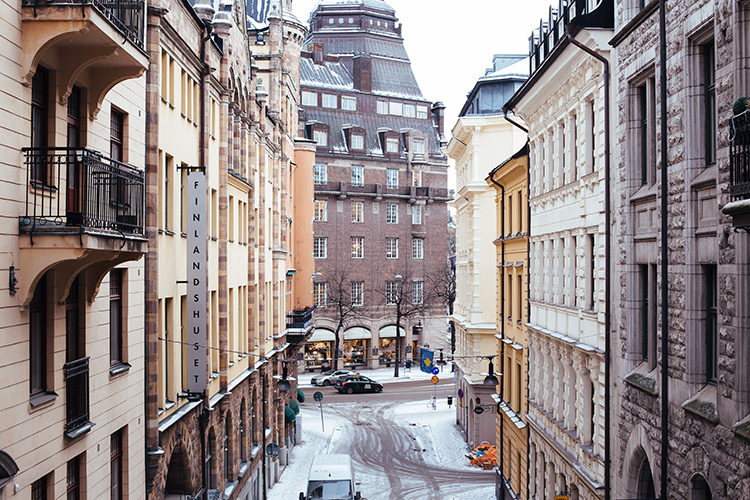ABBA, IKEA and meatballs. That pretty much sums up Sweden, right?
Er, not quite. The Scandinavian country is a hugely appealing place to live — it’s no wonder that so many people are considering moving to Sweden from the UK.
But, as you might expect, it’s not quite so easy as just a hop, skip and a jump over the North Sea to live here. There’s a few things you should know and consider before you make the leap to live abroad.
Don’t worry though; we’ve got you covered on everything you need to know before you move to Sweden.
1. Getting a Personnumber should be #1 priority
One of the features that so many Brits love about Sweden is the fact that everythings runs smoothly here, exactly as it should.
The reason for this ease? The personnumber.
The personnumber is exactly what it sounds like: a 10 digit numerical code unique to each individual living in Sweden.
This code links together all aspects of your public and private life. Without one, you won’t be able to open a bank account, register for university, access healthcare or even start a phone contract.
You’ll be issued a personnumber automatically when you’re offered a job (try to secure one before you come!), otherwise you’ll have to provide paperwork to the authorities proving your right to live, work or study in Sweden. You may also need to show proof of funds.
2. Learn Swedish
While it’s true that the level of English language competency in Sweden is excellent, you’ll find it hard to settle in if you don’t bother to learn the language.
This goes doubly so if you’re working in a Swedish company.
While you may balk at the idea of language classes just so you can move to Sweden, imagine how you’d feel about a Swedish person who came to live in the UK but never bothered to learn English. And then wondered why they found it hard to settle and make friends.
It makes sense, right?
3. Equality rules
One of the best things you’ll find after moving to Sweden is that everyone is treated equally, regardless of age, sex, education, sexuality or disability.
This social equality extends from private lives — it’s common to see new fathers pushing prams on paternity leave — to the public sphere. Workplaces are much more collegiate than in the UK, with more of an emphasis placed on teamwork than individuals and hierarchy.
4. Never forget Fika
Fika is the uniquely Swedish activity of having a coffee and perhaps some cake with friends, family or work colleagues.
It’s an incredible way to foster community, make new friends and cherish old ones — sitting it out might be considered rude.
Swedes think of fika as a regular ritual of slowing down the day and taking stock.
It also allows them time to indulge in their favorite beverage — coffee!

5. Healthcare isn’t free
No matter what you hear about healthcare being free in Sweden, it’s wrong — there is a small price to pay for a visit to the doctor.
While the Swedish healthcare system is mostly funded by taxpayer money, patients are expected to contribute a small fee for every consultation.
Thankfully, this is capped at SEK 1,100 (£100) for a year, so you won’t be left out of pocket if you have to attend a lot of appointments.
6. Winter can be a challenge

While no one can deny that Sweden’s position in the northern hemisphere awards it some truly breathtaking scenery, there’s no doubt that the Winter period can be somewhat cold and dark — particularly the further north you go.
Temperatures frequently dip below zero and hours of sunlight diminish rapidly (as little as 3 hours in the North of the country!), so it’s imperative to invest in quality winter clothing.
But Winter also brings opportunities — skiing, for instance, the Northern Lights, ice hotels, sledding and snowmobiling.
7. How to fit in with the Swedes
One of the first things you’ll notice when moving to Sweden from the UK is just how good the Swedes are at queueing — that’s right, even better than the Brits!
There are a few traits common to Swedes that you’ll do well to adopt if you want to settle in the country. Queueing politely is just one of them. Taking off your shoes before entering a Swedish person’s home is another.
Punctuality is also incredibly important — if you’re late for a meeting, fika or a dinner party, you can be sure that it will start without you. Swedes expect you to respect their time (and they’ll respect yours in return).
Swedes also operate with the concept of ‘lagom’ — that is, acting in moderation. They don’t tend to show emotional extremes (at least in public) and try to moderate their behaviour around others.
8. Buying alcohol can be tricky
The state has a monopoly on alcohol in Sweden, with it only available for purchase from the 400 systembolaget found throughout the country. You can buy it in restaurants and bars too.
This means that alcohol is comparatively quite expensive and sales can be restrictive — the systembolaget closes at 7pm on weekdays and 3pm on Saturdays (closed on Sundays). Make sure you’re not working late if you wanting to pick up a bottle of wine after a long day!

9. Evening shopping is off the cards
Not only do the systembolaget close early but, in fact, most stores do!
Most grocery stores and other shops close by 6.30pm, and consequently, they’re often very busy after 5pm when people leave work.
Any later than 10pm, you can only really expect petrol stations and the like to still be open.
There’s no 24-hour Tesco like back home!
10. Eurovision is important
Perhaps one of the most surprising things you’ll find out after moving to Sweden is the fact that Swedes love the Eurovision Song Contest.
So much so, in fact, that it’s not uncommon to see them leave all sense of lagom (moderation) at the door!
The major date to jot in your diary is Melodifestivalen, which occurs annually in February and March. This is a huge event which sees the eventual nomination of Sweden’s representative to Eurovision, which is held in May.






